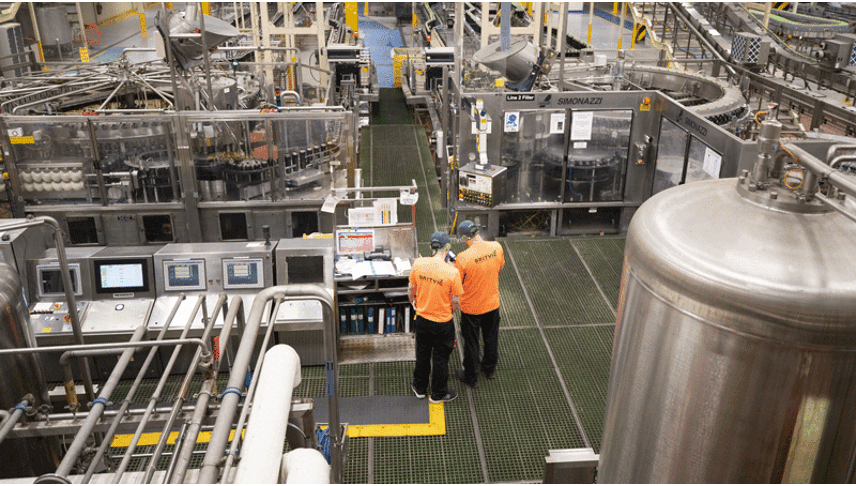Register for free and continue reading
Join our growing army of changemakers and get unlimited access to our premium content

The £24.3m of funding, announced today (9 May), is being made under the second round of the Industrial Energy Transformation Fund (IETF). Launched in 2020, the fund exists to support energy-intensive businesses seeking to improve energy efficiency and pilot clean energy technologies.
Soft drinks manufacturer Britvic is the biggest beneficiary of this latest round of IETF funding. It will receive £4.4m to implement new systems at its site in east London, including a heat recovery system and a more efficient water heating system.
Britvic has stated that the investment, which it is matching with £3.6m of its own funding, will halve emissions at the site, which produces 2,000 units every minute.
Also in the drinks sector, Heineken will receive £3.7m for upgrades at its Manchester brewery. One of the improvements will be the installation of a heat recovery system that will tap into heat generated by fridges.
Elsewhere, exploratory studies into how natural gas use can be reduced are being funded at Kellogg’s and Tate and Lyle Sugars.
Some of the recipients are already clear on their pathway to reducing fossil fuel use. Chemicals firm Ingevity UK will receive £2.6m to support the installation of hydrogen-ready boilers at its site in Warrington, while compost and soil product producer Natural World Products will take almost £300,000 to help electrify plant equipment. Also eyeing electrification is AB InBev UK in Preston, which will receive funding to explore the feasibility of heat pumps.
Policy packages
A total of £289 million is being made available to businesses through the IETF up to 2027. Including the allocations announced today, the scheme has allocated some £61.4m to date. Earlier this year, funding was provided totalling £12.4m.
Energy Efficiency Minister Lord Callanan said the funding will “help to future-proof these industries as we grow our green economy”. He argued that the installation of energy efficiency technologies and cleantech will not only reduce energy costs, but “boost competitiveness on the world stage”.
Energy-intensive companies have been warning the UK Government for months that they are facing higher costs than their peers in the EU and in other markets.
While the Government has intervened to change certain energy levies for these industries, and to provide funding for cleantech on a competitive basis, we are still awaiting the UK’s rival to cleantech subsidy packages being provided in the US and the EU. Chancellor Jeremy Hunt has stated that this announcement will likely come through the Budget this Autumn.
In the meantime, the Government has committed £20bn over 20 years to support carbon capture. Today’s IETF funding does cover some carbon capture projects, including one at Breedon Cement’s site in Derbyshire.
Related blog: How can we learn from innovation in energy-intensive industries?


Hydrogen as a fuel seems an odd choice–it has to manufactured, it does not occur naturally, like oil and coal and methane. When it is burned it is impossible to recover all the energy required for its generation, (para 7).
And unless generated by renewables, not always reliable, or nuclear energy, which is, its’ manufacture involves CO2 generation, and perhaps capture and disposal; more expense.
“It just ain’t simple”; if only!